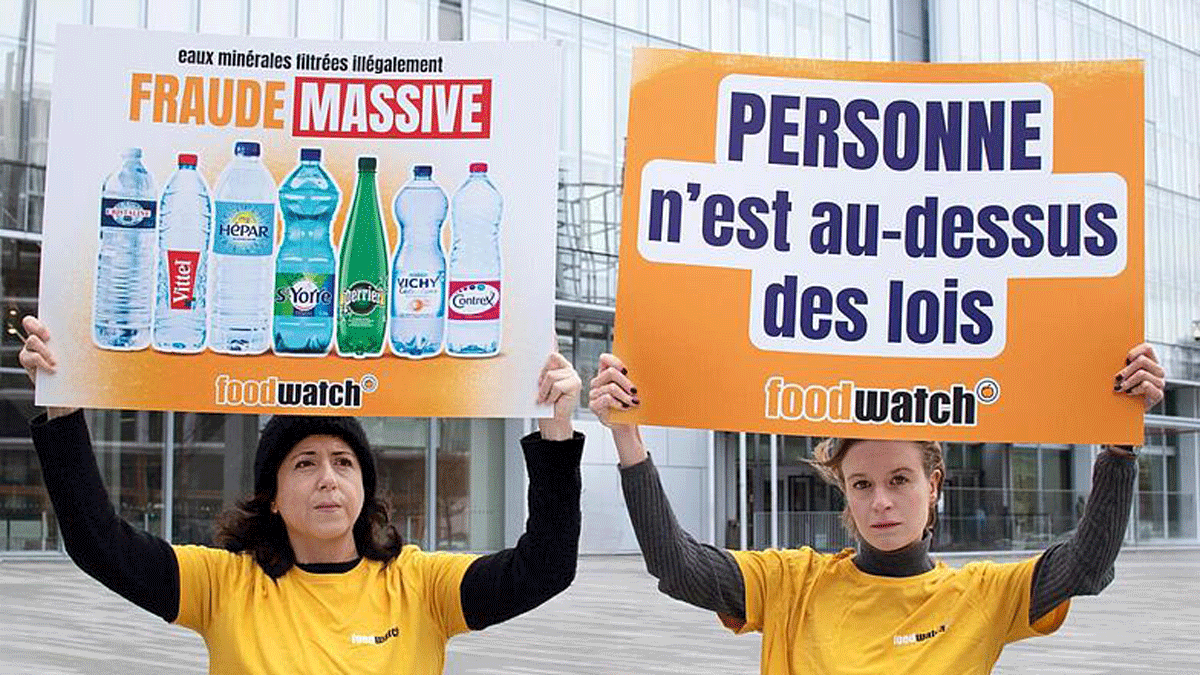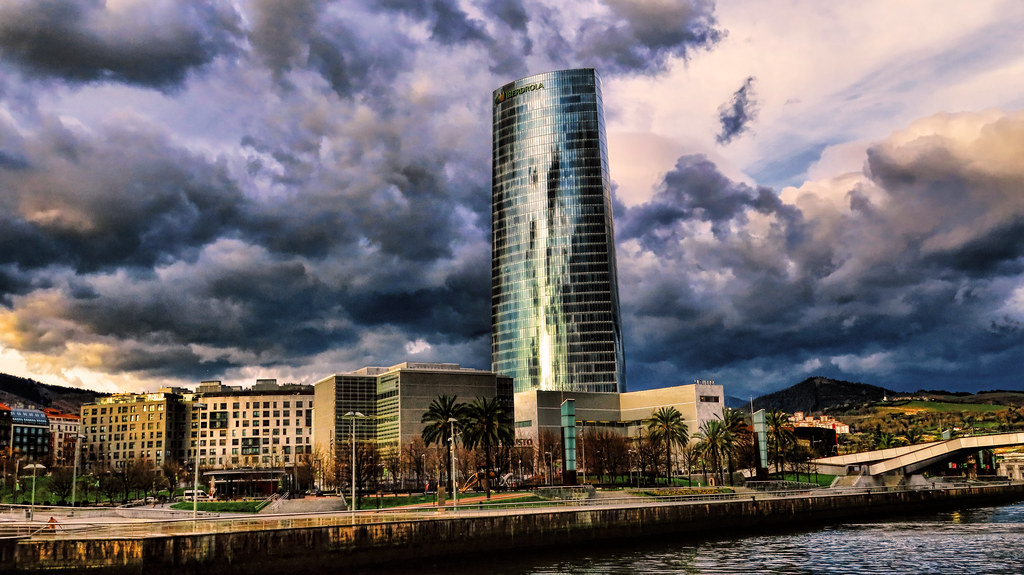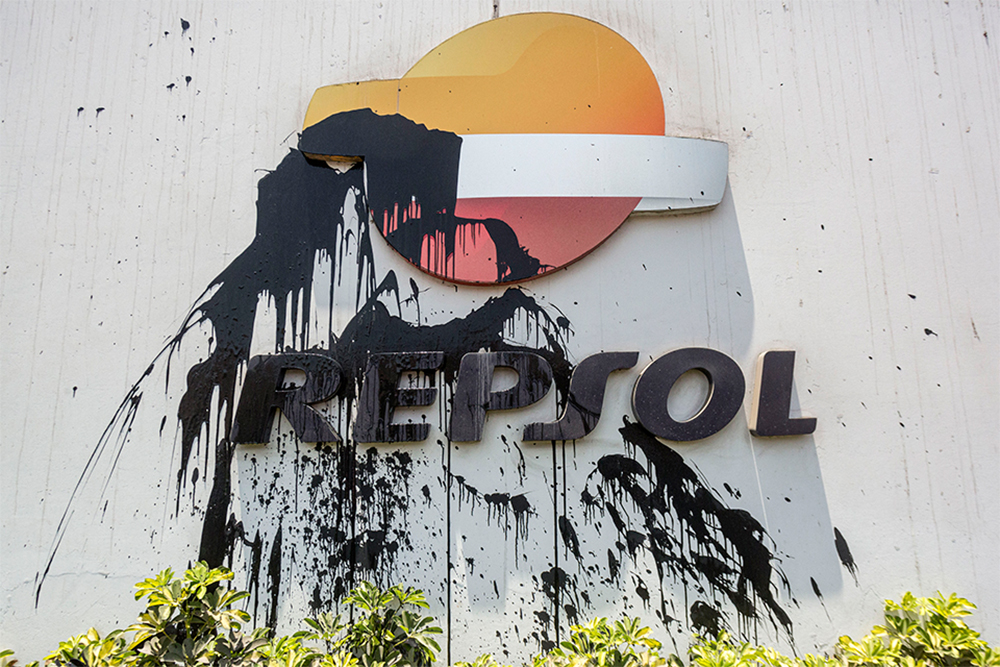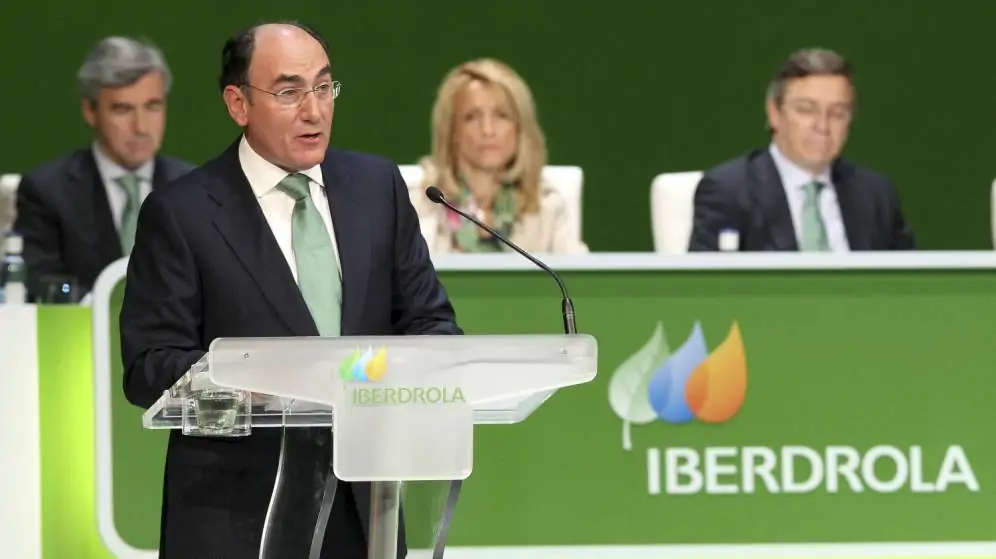In search of binding international regulations, just a few steps away
- Last week the second working day of the UN Working Group on Transnational Corporations’ Responsibility for Human Rights ended. Like last year, this year’s objective was to listen and inform the experts to draft a binding international convention for next year. Professor of the UPV/EHU Juan Hernández Zubizarreta, who has participated as an expert in the congress, has explained what can be expected of the UN and what demands the popular movement.
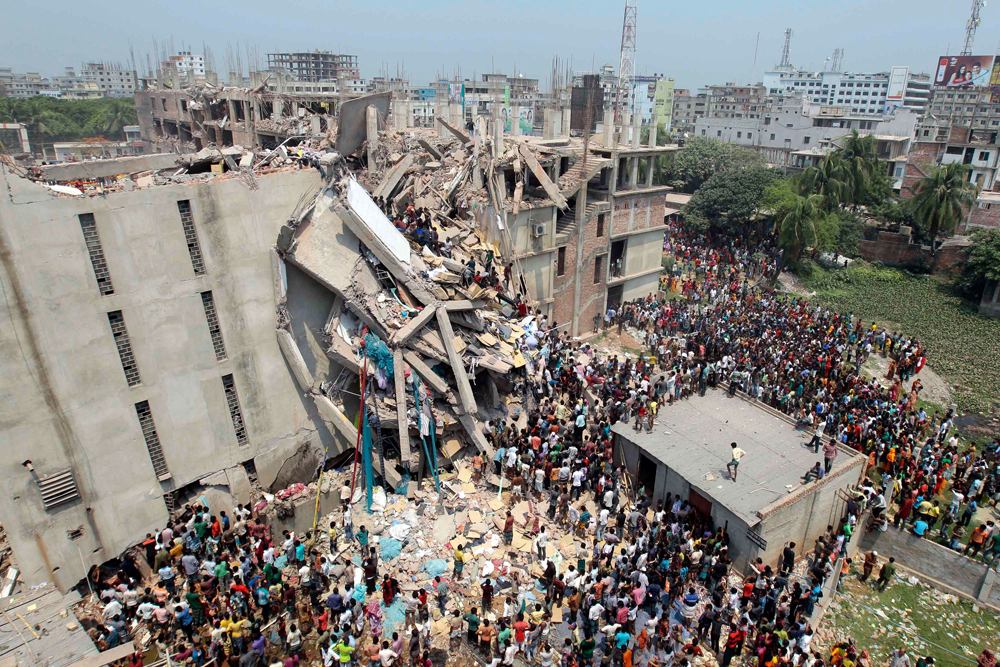
In June 2014, the United Nations Human Rights Council (UN), composed of 47 states, took an unexpected decision with a proposal from Ecuador and South Africa: to set up an Intergovernmental Working Group to regulate the responsibility of transnational corporations for human rights. In particular, its role is to propose a binding international treaty.
As usual, the Council met in Geneva, Switzerland, to discuss health reform. Meanwhile, abroad, hundreds of members of civil society participated in the Permanent People ' s Court to influence the decision of state representatives. Despite the small step, they received the news with joy, as the trend that until then dominated had been broken. “When talking about transnational corporations,” said Juan Hernández Zubizarreta, professor of international law and member of the People’s Court, “the logic of the UN has been the logic of soft norms, the logic of corporate responsibility within corporate ethics, according to one’s own will.” In short, there are no binding rules that could give rise to sanctions, thank you.
As approved by the Human Rights Council, the new working group will have to devote the first two sessions, that of 2015 and that of 2016, to listening and informing experts. This stage, which ended last week, will continue until next year 2017, when the draft of an international convention will be presented and debated, culminating in a bilateral meeting.
The final text of the pact cannot be guessed by the time it can be agreed, because the UN is a very slow organisation and it cannot be said with certainty whether it will finally come into force, not least because there are strong resistance within the UN Human Rights Council itself. The richest states (USA, Japan, all EU countries…) voted against the establishment of the Intergovernmental Commission. The only powers that voted in favour were China and Russia, “probably for reasons of geostrategy,” according to Hernández Zubizarreta.
Against systematic impunity
“We don’t know how far the draft that the working group will present will coincide with our requests,” explains the UPV/EHU professor. On the one hand, Hernández has come to Geneva as a representative of the popular movement, a member of the international campaign Dismantle Corporate Power. This year, however, he has also participated officially in the Council meeting, as he has been one of the invited experts.

“Today, and this is how I started my speech, the impunity of transnational corporations is systematic,” he says. “They have tremendous power, political, economic, media and legal power. As for the latter, the reason is that there is a great imbalance between the rights and duties of transnational corporations. The right that protects the former is tough and enforced. On the contrary, their obligations are governed by international human rights law, and that right is weak.”
One example: Although the International Labour Organization (ILO) has an agreement against child labour, a State can accept that children over the age of one work and the transnational who work there can benefit from it as long as it does not infringe the law of that State, which international law does not prevent it.
“International law lacks teeth”
The Dismantle Corporate Power campaign calls for the treaty to be proposed by the UN to oblige transnational corporations, at all times and in the countries in which they find themselves, to respect international law, not only local but also local. “In addition, we believe, and this is very important to us, that a court must be created to enforce all this,” says Juan Hernández Zubizarreta, “because, as many experts say, international law lacks teeth, not dead. You can have very good deals, but if there is no body to do so, it’s not worth much.” In any case, the professor considers that the creation of an international tribunal of this kind is a very difficult goal, “since it will not be easy for states to accept something like this”.
A number of associations are calling for the establishment of an international tribunal to try violations of human rights committed by transnational corporations, but it will not be easy for states to recognize them.
Until such time as there is a court of this kind, what is known as the " legal stratorality " , it can be used to denounce and prosecute human rights violations committed by transnational corporations, another of the demands of the Dismantle Corporate Power campaign. “Stratitritoriality can mean that anyone can denounce a transnational, not only in the country where the rights have been violated, but in the place where the transnational has its headquarters,” explained Hernández Zubizarreta.
The professor recalls the collapse of the building in April 2013, which caused the deaths of more than 1,000 people in Dakhan, the capital of Bangladesh. The disaster caused the building disaster, which, despite the severe cracks the workers showed, remained on site wearing clothes for transnationals from various sectors. “One of these companies is Spanish in El Corte Inglés, and if the measure of stratorality were applied, unlike what is happening today, it could be reported in a court in Madrid to El Corte Inglés for the events in Bangladesh.”
Establishing who bears responsibility, one of the greatest challenges
To take this company as an example is no coincidence. In fact, the English Court does not work directly in Bangladesh, but by outsourcing local companies. “However, the same conditions are laid down; it is one of the many legal means that transnational corporations can use: the hiring of local companies. What civil, criminal responsibilities… has El Corte Inglés finally had in Bangladesh? None.” Hernandez considered that the pact to be created should be a weapon to avoid it: “Responsibility must be imposed throughout the production chain.”
It is precisely the definition of what is transnational that will be one of the most difficult tasks of the Human Rights Council ' s presentation. And it will have to fight against the will of the richest states. In the social movement, the question has already arisen that if the powerful were to be completely submerged, would it be worth making an international convention? Time will tell, and with all the appearance, it won't be a short time.
Ur kontaminatua ur mineral eta ur natural gisa saltzen aritu dira urte luzeetan Nestlé eta Sources Alma multinazional frantsesak. Legez kanpoko filtrazioak, iturburuko ura txorrotakoarekin nahasi izana... kontsumitzaileen osagarria bigarren mailan jarri eta bere interes... [+]
Frankismoa ez zela 1975ean amaitu diktadoreak ohean azken hatsa eman zuenean, hori badakigu. Erregimenaren haziek bizirik iraun zuten poliziaren tortura ziegetan, justizia auzitegien sumarioetan eta militarren zein politikarien deklarazio kolpistetan –Aznarrek azkenaldian... [+]











